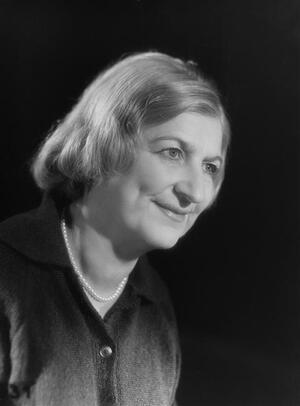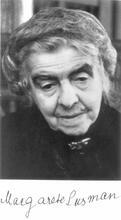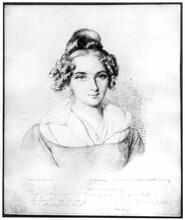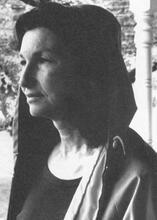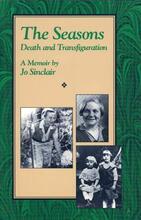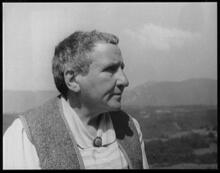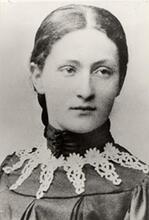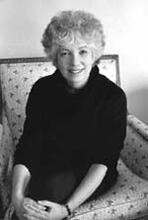Clara Malraux
Clara Malraux and her husband, novelist and politician André Malraux, were involved in antifascist activities in the 1920s and 1930s. When the Germans invaded France in 1940, Clara fled with her daughter to the Free Zone, where she was forced into hiding. She became a member of the French Resistance, and even in hiding, she developed ideas about the representation of women in French literature. After the war, she returned to Paris and worked as a journalist, essayist, fiction writer, and translator. Her writing draws on her personal experiences, including her best-known work, the six-volume autobiography, Le Bruit de nos pas (1963–1979). Her later books describe her connection to Judaism and her attempts to make a place for herself in a misogynistic and antisemitic society.
Overview and Early Life
During her long and active life Clara Malraux was motivated principally by her feminist convictions and by her growing awareness of herself as a Jew. In her youth she struggled to escape the stifling role assigned to women of the bourgeoisie, to become a participant in life rather than a spectator. Her determination to create a meaningful and engaged life for herself caused her to reject the role of a conventional wife. After the failure of her attempt to forge an egalitarian marriage, she succeeded in making a life for herself by playing an active role in the French Resistance during World War II, going on to a successful career as a writer and activist after the war. In her middle years, her experiences during the war forced her to confront her identity as a Jew. In her essay on the German-Jewish intellectual and salonnière Rahel Levin Varnhagen, Malraux saw these two concerns as intimately linked. “Respect for women and respect for Jews go hand in hand,” she wrote. Born into the assimilated haute bourgeoisie, with little knowledge of Judaism and little identification with Jews, her experiences as a Jewish single mother of an ailing child during the war transformed her into a passionate defender of Israel often in conflict with other left-wing intellectuals.
Clara Goldschmidt was born in Paris, the daughter of the prosperous German-Jewish immigrant Otto Jakob Goldschmidt (1860–1910) and his wife Grete Heynemann (1874–1938, suicide). Although the Goldschmidts were not practicing Jews, they never denied their origins. Because it was convenient, Clara and her two brothers André and Georges attended Catholic schools, but her father would tease her when she would refer to “her ancestors the Gauls.” The Goldschmidts maintained close ties with their German relatives and often visited the grandparents and cousins in Magdeburg, Germany. Clara was perfectly bilingual and read widely in German as well as in French literature. The death in 1910 of Otto Goldschmidt, whom she worshipped, was a catastrophic event for her. Her relationship with her mother was more complicated. Grete Goldschmidt, never comfortable with the French language and with French mores, had always led a passive existence in the shadow of her husband. Her mother’s powerlessness and lack of occupation, which became more pronounced after her husband’s death, made Clara resolve to fashion a different existence for herself.
Marriage and Early Activism
At age twenty-four, against the wishes of her family, Clara, who had become connected to the avant-garde journal L’Action, in which she published translations from the German, married André Malraux (1901–1976). Clara had detected signs of genius in the nineteen-year-old Malraux, who went on to become a famous novelist and politician. She never changed her opinion of his talent, although she would later find much to criticize in his actions and in his relationships with people.
The couple’s first adventure was a 1923 trip to Cambodia, where they intended to locate ancient Khmer statues and sell them illegally in Europe. They were arrested and tried, and only extreme measures by Clara saved André from going to jail. A year later they returned to Indochina to publish an anti-colonial newspaper in Saigon. In the 1920s and 1930s, Clara continued to support André in his literary and political activities. She also wanted to write and claimed that she had written from childhood on, but André discouraged her and she was forced to write in secret. In the 1930s Clara and André were active in anti-fascist activities in Spain, where they took part in the struggle against Franco, and in France where Clara helped refugees from the east find shelter and work.
Although they shared the same political vision at the time and in spite of the birth of a daughter, Florence, in 1934, the couple drifted apart. Clara had dreamt of a marriage based on equality and a transparent relationship between man and wife. Instead she found that she had married a domineering man who refused to give her any credit for her contribution to his actions, his work, and his fame, and who prevented her from developing her own talents.
World War II and Later Writing
When the German invaded France in 1940, Clara, already separated from her husband, fled to the Free Zone with her daughter. There she was forced to move from one hiding place to another, struggling to shelter and feed an ailing child. She became a member of the French Resistance—as a Jew she felt she had no choice—and undertook a number of dangerous activities, such as passing forged papers and encouraging German soldiers to desert. Her intellectual activities, however, did not cease, even under these dire conditions. In the various dark, damp, and cold lodgings she occupied (her “salons”), she and her friends managed to discuss literature and she developed a number of ideas concerning the representation of women in French literature, which she published in various journals after the war. She was to claim later in her fictional works as well as in her autobiography that her struggles to save her child and her clandestine activities in the Resistance enabled her to become her own person, courageous and confident of her abilities.
After the war and her divorce from André, Clara returned to Paris and began an active career as a journalist, essayist, fiction writer, and translator from German and English. Her short stories and novels draw heavily on her personal experiences. In Portrait de Grisélidis (1945, Portrait of Griselda), the heroine examines her attraction to the charismatic adventurer Roger Perrouin and wonders about her need to submit to a powerful personality. La Lutte inégale (1958, The Unequal Struggle) and the short story collection La Maison ne fait pas crédit (1947, 1981, Strictly Cash) are based on her activities during the Occupation and document the small steps by which women, often doubting their abilities, became important instruments in the struggle against injustice.
Malraux is, however, best known for her six-volume autobiography Le Bruit de nos pas (1963–1979; The Sound of our Footsteps). In a fluid, nonlinear style, with numerous digressions and exceptional recall of sensual details, she describes her happy childhood, her rebellion against the conventional bourgeois values of her family, her love affair with André, their adventures and travels, her struggles during the Occupation, and her efforts to create a life for herself and by herself after the war. The autobiography attracted much attention because she challenged André Malraux’s version of events to which she had been a witness. More importantly, however, it is an invaluable description of the life of a Jewish single mother during the Occupation and of her growing self-awareness as a woman and as a Jew.
Malraux’s last three books reveal how central her Jewishness had become to her. In Rahel, ma grande soeur (1980; Rahel, My Older Sister), she examines a German-Jewish woman’s role in the diffusion of Enlightenment ideas and describes her attempts to make a place for herself in a misogynistic and antisemitic society. Clara Malraux made numerous trips to Israel, which gave her material for two books celebrating the new state: Civilisation du Kibboutz, (1964; The A voluntary collective community, mainly agricultural, in which there is no private wealth and which is responsible for all the needs of its members and their families.Kibbutz Civilization) and Venus des quatre coins de la terre (1972; They Came from the Four Corners of the Earth). She was also active in Le Comité de la gauche pour la paix négociée au Moyen-Orient, which promoted a negotiated peace between Israel and its neighbors, and in the Conseil des intellectuels juifs pour Israël.
She died peacefully in her sleep in December 1982 while visiting a friend in Normandy, survived by her daughter Florence.
SELECTED WORKS BY CLARA MALRAUX
Portrait de Grisélidis (1945).
Contes de Perse (1947).
La Maison de fait pas crédit (1947, 1981).
Par de longs chemins (1953).
La Lutte inégale (1958).
Java-Bali (1964).
Civilisation du kibboutz (1964).
Venus des quatre coins de la terre (1972).
Le Bruit de nos pas (1963-1979).
Rahel ma grande soeur (1980).
Unpublished Plays
L’Impermanence.
Le Jeu.
Le Silence.
Le Vieux cheval.
Selected Translations
Janouch, Gustav. Kafka m’a dit (1951).
Rinser, Louise. Les Anneaux transparents (1956).
Wiechert, Ernst. L’Enfant élu (1960).
Woolf, Virginia. Une Chambre à soi (1977).
De Bartillat, Christian. Clara Malraux: le regard d’une femme sur le siècle: Biographie-Témoignage. Paris: 1985.
De Courtivron, Isabelle. Clara Malraux, une femme dans le siècle. Paris: 1992.
Goessl, Alfred and Roland Champagne. “Clara Malraux’s Le Bruit de nos pas: Biography and the question of women in the case of Malraux.” Biography: An Interdisciplinary Quarterly, vol. 7:3, (1984): 213–232.
Gorrara, Claire. “Feminist Rereadings of the War Years: The Case of Clara Malraux.” French Cultural Studies 7:1 (19), (February 1996) 63–76.
Suleiman, Susan. “Malraux’s Women: A Re-vision.” In Witnessing André Malraux, Vision and Re-Visions, edited by Brian Thompson and Carl A Viggiani. Middletown, CT: 1984.
Witherell, Louise. “A Modern Woman’s Autobiography: Clara Malraux.” Contemporary Literature 24:2 (Summer 1983): 222–232.

